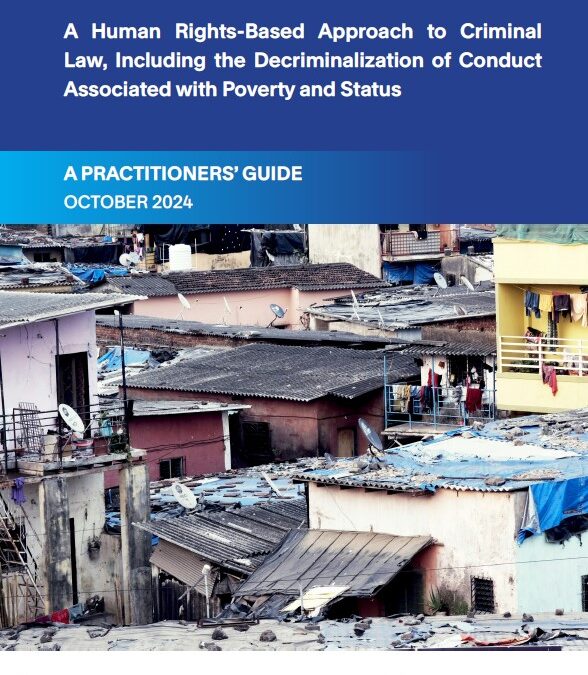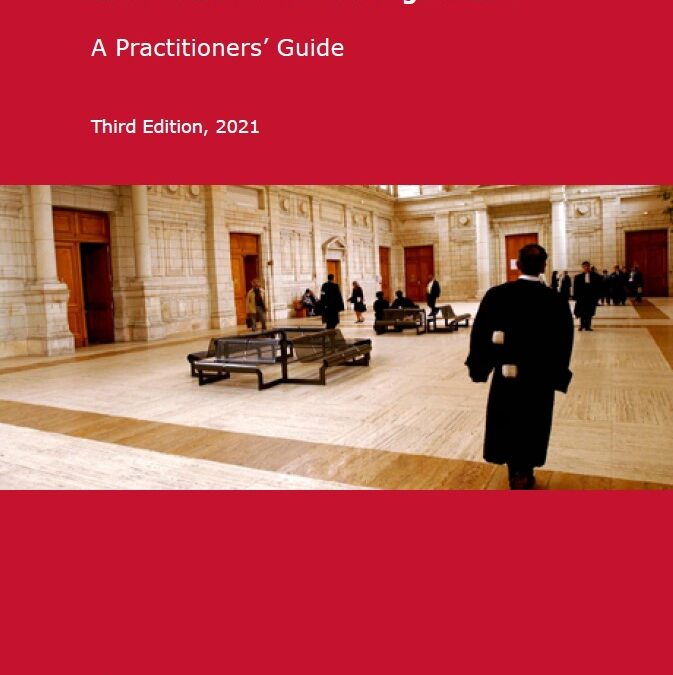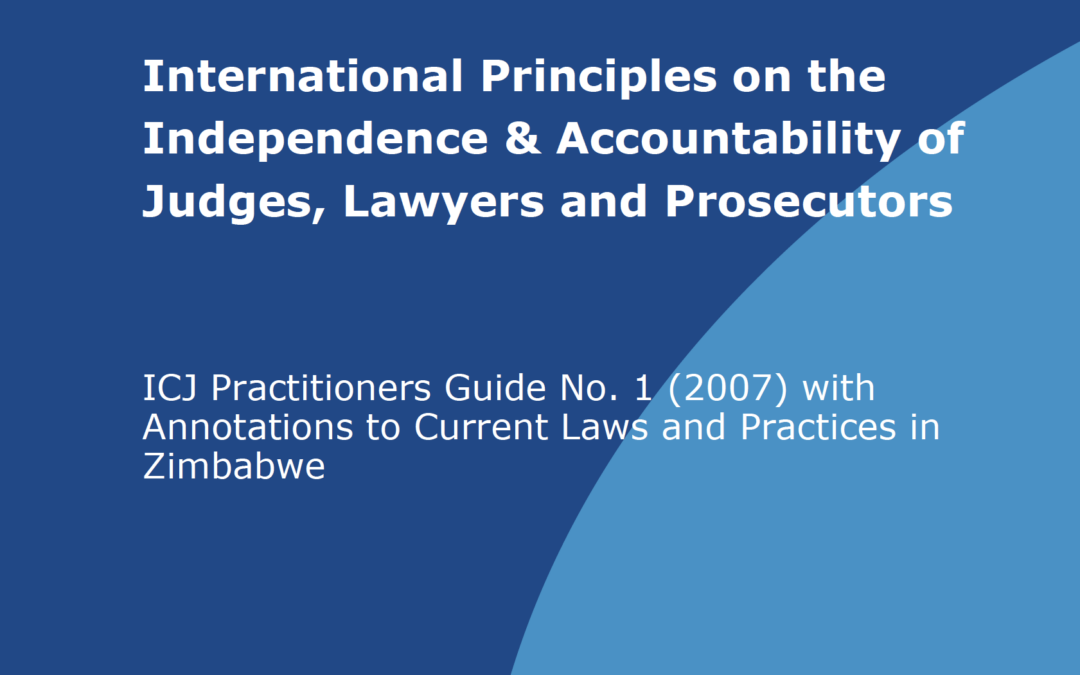


A human rights-based approach to criminal law: new Practitioners’ Guide on decriminalization of Poverty and Status
The International Commission of Jurists (ICJ) – together with the Institute of Commonwealth Studies (ICwS) and the Commonwealth Secretariat (ComSec) – has launched a new Practitioners’ Guide on “A Human Rights-Based Approach to Criminal Law, Including the...
A human rights-based approach to criminal law: new Practitioners’ Guide on decriminalization of Poverty and Status
The International Commission of Jurists (ICJ) – together with the Institute of Commonwealth Studies (ICwS) and the Commonwealth Secretariat (ComSec) – has launched a new Practitioners’ Guide on “A Human Rights-Based Approach to Criminal Law, Including the...
Migration and international human rights law – Third edition of Practitioners Guide no. 6
The ICJ today published the third edition of its Practitioners Guide No. 6 on Migration and International Human Rights Law.

Zimbabwe: ICJ publishes guide on independence of judges, lawyers and prosecutors
Today, the ICJ publishes a practical guide which will give legal practitioners and others who engage with the administration of justice in Zimbabwe a readily accessible reference tool on the question of independence of judges and lawyers
The guide is entitled the International Principles on the Independence & Accountability of Judges, Lawyers and Prosecutors: ICJ Practitioners Guide No. 1 (2007) with annotations to current laws and practices in Zimbabwe.
It adapts the ICJ’s general Practitioners Guide to the particularities of the Zimbabwe justice system so as to make it especially useful for Zimbabwean practitioners.
The Guide takes as a starting point the principle of separation of powers and affirms that the judiciary serves as an essential check and balance on the political branches of government. In that way it can carry out its role in ensuring the fair administration of justice and as a guarantor of human rights.
Judges, lawyers and prosecutors must therefore be independent for the fair and effective functioning of the administration of justice. They also must be accountable for misconduct such as corruption or complicity in human rights violations.
The Guide comes with Recommendations with a view to bringing Zimbabwean law and practices in line with international standards
Speaking on the publication, ICJ’s Senior Legal Advisor , Blessing Gorejena noted that,
“The independence of judges , lawyers and prosecutors is a cornerstone to an effective judicial system and an enabler of access to justice. It is our hope that this publication will inspire reflection and reform in line with the recommendations made in the Guide, which will strengthen the judicial system in Zimbabwe”.
The Practitioners Guide No.1 on Independence of Judges, Lawyers and Prosecutors was published in 2007. The adaptation of Practitioners Guide No. 1 reproduces the original text of the 2007 second edition, adding annotations to specific national legal and policy frameworks in Zimbabwe. It is part of a series of ICJ publications on international law which are being adapted to the Zimbabwean context. The publication will assist practitioners in terms of understanding the gaps within the Zimbabwean legal framework that need to be addressed to ensure compliance with international standards on independence of judges, lawyers and prosecutors.
Contact
Blessing Gorejena, Senior Legal Adviser and Team Leader of ICJ Zimbabwe Project, t: +263 77 215 1989, e: blessing.gorejena(a)icj.org
Elizabeth Mangenje, Legal Adviser, e: elizabeth.mangenje(a)icj.org
Download




